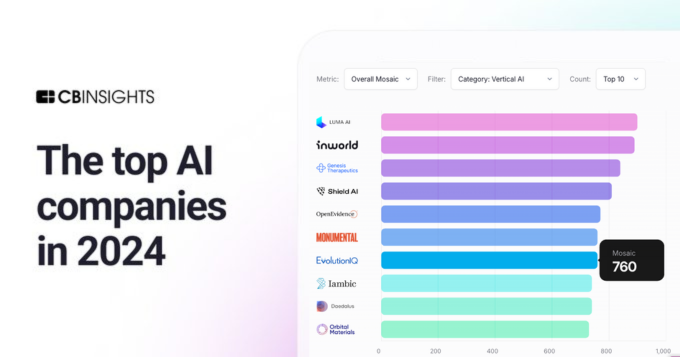For sick and injured employees on Short-Term Disability (STD), a successful recovery path hinges on claims examiners making accurate and fast decisions at the outset. Just as EvolutionIQ’s AI-powered claims guidance is making an impact at Reliance Standard Life – as seen here in our case study – new data just in from a top 10 group disability carrier that onboarded in 2022 reveals a similar dramatic impact.
When an STD claim comes in, teams must immediately triage it so that the right examiner with the right expertise is assigned. Failure to match the claim with the right expertise can place it on the wrong trajectory – which is often very difficult to correct once it’s in motion. For example, some claims can be put on a fast track because they’re relatively straightforward. Others may be more complex and require intervention by specialists. Still others may have medical conditions that are very serious – or that require long recovery times – and so it’s known very early that they’ll likely need to transition to Long-Term Disability (LTD) rather than recover and return to work while still in STD. And if a carrier is struggling with personnel shortages, the speed and accuracy of decisions only increases in importance as any time wasted is time that can’t be spent helping patients in need.
Claims Go to the Right Examiner Faster
At the disability carrier that using EvolutionIQ, the new data reveals that time to assign a claim to the right examiner has fallen substantially – by 77% – vs the carrier’s legacy processes. Once the AI platform was up and running, the number of days it took to assign a claim to the right examiner fell to just 2.4 days.
Put simply, that means claims start on the right track and stay on the right track – which helps sick or injured claimants recover faster. High-effort claims get the most experienced examiners and claims that are not complex can be worked by a team dedicated to rapid turnaround – which again improves the claimant’s experience.
Importantly, EvolutionIQ’s triage efficiency also freed up time for those whose job it is to manage a team of claim examiners. The AI platform freed-up nearly three days per month of manager time – time that had been previously spent reviewing and assigning claims. Now managers at the carrier only handle the exceptions – and this time has dropped from hours to minutes per day. This leaves them more time to focus on examiner training and other substantive issues.
Faster Decisions Aid Patient Recoveries
Once in the right examiner’s hands, the time to reach a claim decision has also been reduced. With the platform, the time to review a claim, fully understand its attributes, and then make a decision on its trajectory fell by 56%. This is driven by the clear guidance and actionable next steps provided by the AI platform. As a result, there are no more situations in which sick or injured claimants are left in limbo while key actions are still undecided due to complex or voluminous data in the case file.
As seen in the chart below, the carrier’s average time it took to make a claim decision was about 28.5 days on average using legacy processes. It had hoped to reduce that number to 24.5 using EvolutionIQ. However, once the platform was deployed, the average time to decision fell to just 12.6 days
That extra time benefits claimants – as worry and stress is reduced as they get their claims approved faster and the right experts get involved sooner. It also means examiners can help even more people get on the right recovery track.
At the same time, the platform is helping examiners make more critical decisions each day. After deploying the system, the carrier’s examiners began making 15% more decisions per day with EvolutionIQ than without. This is directly attributable to the clear predictions that the AI shows the examiner and the information that backs that up.
For this carrier’s examiner team, that would translate into more than 2,000 additional claims handled per year. It’s like having nearly 5 additional examiners on the team.
Decrease in Claimants Needing Long Term Disability
And because of this highly accurate and early triage, the number of claimants requiring Long Term Disability has been reduced by nearly half, as seen in the chart below. This means that more people are recovering while on short-term disability rather than sliding into long-term for procedural, rather than medical, reasons. That decrease in claimants requiring LTD also means that examiners have even more time to assist STD claimants on their unique recovery journeys.
A critical driver of this drop is the AI’s ability to accurately identify claims very early in the process that will likely transition. This early identification gives transition teams more time to work the claims and discuss with the sick or injured claimant what the transition will mean for them and how all of the steps will play out.
Because a transition from STD to LTD isn’t automatic, claims often ‘bunch up’ when using legacy methods as their STD status is ending and they’re about to move to LTD. By identifying these claims very early, not only is the transition window less crowded, but examiners can use their time to effectively aid each claimant in their transition journey.
Using legacy processes, the carrier’s baseline of LTD transitions was 6.9%. They had hoped using EvolutionIQ would bring that down to 6.2%. Once the system was deployed, the number fell to just over 3% – and the line is still trending downward.
Using EvolutionIQ, 15 extra days on average were created for the transition team to work on each claim. As a result, many claims that might have transitioned to LTD using legacy methods are instead resolving while still in STD. This is the primary reason why the transition rate has gone down so much – examiners are now finding the claims that would resolve in the first couple of months, and getting them resolved before the end of STD.
The carrier’s lead time to review transitions had been about 45 days. They had hoped to build that number up to 60 days using EvolutionIQ. Once the system was deployed, that number actually jumped to 64 days of lead time.
As the carrier’s LTD Transition Manager told us: “EvolutionIQ is beyond anything I ever imagined. I can tell you that it is definitely working, and I was hoping for something like this for a long time.”





